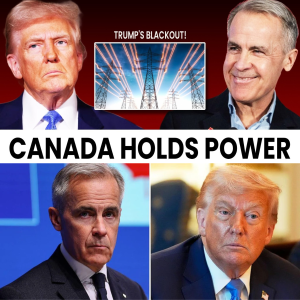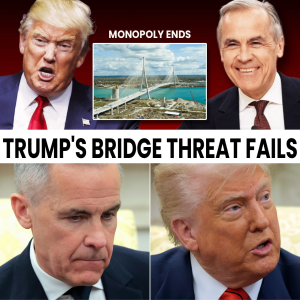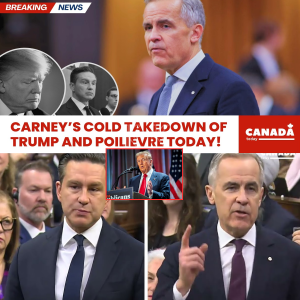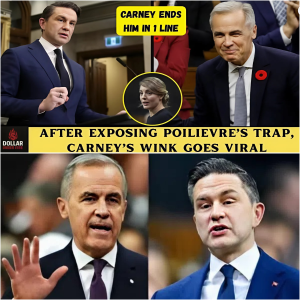Late-Night Tension and a Fractured Government Collide in a Week of Political Spectacle.
In a week marked by governmental paralysis and an escalating sense of national fatigue, two seemingly routine television moments managed to dominate the political conversation. What began as another late-night monologue and a typical morning-table riff quickly evolved into cultural flashpoints, reflecting both the exhaustion and the absurdity that have come to define the American political climate.
At the center of the week’s tension was President Donald J. Trump, who, even as the nation entered the longest government shutdown in its history, welcomed Hungarian Prime Minister Viktor Orbán to the White House. The timing baffled diplomats and policy experts alike. Airports across the United States were canceling flights amid staffing shortages. Federal workers faced missing paychecks. Families relying on food assistance programs confronted the possibility of disruption. Yet the administration’s public focus seemed fixed elsewhere: on foreign strongmen, grievances against perceived enemies, and the ongoing battle over media narratives.
It was into that environment that Jimmy Kimmel stepped, opening his late-night show not with heightened satire but with a calm reading of Mr. Trump’s recent online posts. He delivered them without commentary, letting the contradictions land on their own. It was a stylistic choice that, ironically, made the segment feel sharper than the typical punchline-driven monologue.
On The View, Whoopi Goldberg found herself in a parallel moment. After a brief joke about political theater drew a cautious clarification from the show’s producers, she tore the note — not with anger, but with a weary flick of the hand. The gesture, captured on camera and quickly clipped for social media, signaled a quiet resistance to the increasingly legalistic scrutiny applied to televised humor. The audience laughed. Online, the clip spread.
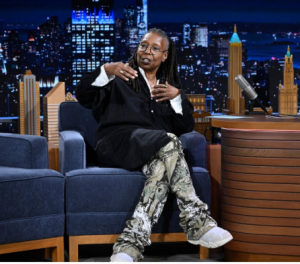
Within hours, both segments had crossed into the broader political bloodstream. Commentators and activists spliced the moments into threads, reaction videos, and commentary reels. Political accounts framed the scenes as evidence of either cultural decline or cultural resolve. The president reacted in familiar fashion, advisers said: annoyed, then mobilized. Publicly, he dismissed the shows as failing enterprises. Privately, according to two people briefed on the matter, he complained that late-night television no longer respected the presidency.
The White House attempted to maintain its own narrative, releasing statements that emphasized foreign policy achievements and economic resilience. But those efforts were regularly overshadowed by the president’s posts, which advisers have long struggled to reconcile with formal messaging. The dissonance — between institutional communication and personal grievance — remains a defining feature of the administration.

Elsewhere, the political landscape was shifting in ways that underscored the nation’s growing cultural divide. In New York City, Zoran Mamdani became the first Muslim and South Asian mayor in the city’s history. His victory speech, celebratory yet pointed, included a direct message to the president: “Donald Trump, since I know you’re watching, I have four words for you. Turn the volume up.” The moment landed decisively, ricocheting across social media and joining Kimmel’s and Goldberg’s clips as part of the week’s broader political mosaic.
For many Americans, these overlapping storylines — a government shutdown, a controversial diplomatic meeting, late-night satire, daytime candor, and a historic municipal election — created a sense of being caught between parallel realities. The official narrative from Washington emphasized stability and strength. The cultural narrative conveyed something more fractured, more immediate, and more telling.
Political strategists say the phenomenon reflects a shift in how citizens absorb political information. “People understand the world now through cultural moments,” said a Democratic media consultant. “A monologue can move the needle more than a press conference.” Even some Republicans concede that the saturation of spectacle is wearing on voters. “People are tired,” said a former White House official. “There’s no room to breathe.”
The shutdown’s tangible consequences — delayed services, strained agencies, economic anxiety — remained the underlying story. But the cultural moments stood out because they offered rare flashes of clarity. Kimmel’s understated delivery, Goldberg’s quiet defiance — both served as reminders that public discourse can still puncture political distortion rather than reinforce it.
In an era defined by noise, it was the simplest observation that lingered longest, delivered without drama or flourish: Everything he touched was a loser.
